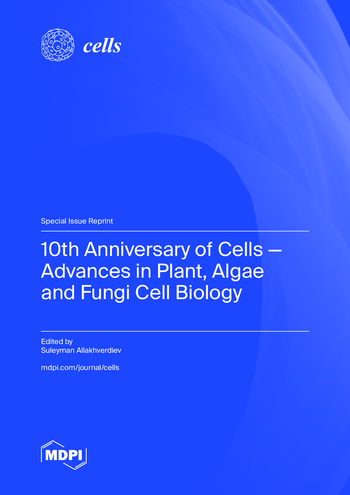肿瘤抑制因子 p53 蛋白在艾滋病毒与宿主细胞相互作用中的作用
IF 5.1
2区 生物学
Q2 CELL BIOLOGY
引用次数: 0
摘要
病毒成功感染离不开病毒与宿主的关系。艾滋病毒的致病机理取决于宿主与病毒之间错综复杂的相互作用,以调节艾滋病毒的感染,从而影响各个方面,包括信号通路的调节。高突变率和群体异质性是艾滋病病毒的特点,对病毒的发病机制产生影响,并有可能逃脱免疫系统和用于治疗的抗病毒抑制剂。HIV 变异率高的原因可能是有限的模板复制保真度,这种保真度可能在细胞质中发挥作用。在 HIV-1 感染的早期阶段,HIV-1 会诱导肿瘤抑制因子 p53 蛋白的上调和激活。p53 在 HIV 感染的背景下发挥着多方面的作用,从而影响病毒的复制。p53 参与维持遗传完整性,通过其各种生化活动以及与修复机制成分相互作用的能力,积极参与各种 DNA 修复过程。本报告的重点是 p53 蛋白对 HIV-1 逆转录过程的影响,同时结合了各种不正确和非规范的核苷酸。细胞质中存在具有校对修复活性的功能性宿主编码 p53 蛋白可能会导致各种生物学结果。本文章由计算机程序翻译,如有差异,请以英文原文为准。
The Role of Tumor Suppressor p53 Protein in HIV–Host Cell Interactions
The virus–host relationship is indispensable for executing successful viral infection. The pathogenesis of HIV is determined by an intricate interaction between the host and the virus for the regulation of HIV infection, thereby influencing various aspects, including the regulation of signaling pathways. High mutation rates and population heterogeneity characterize HIV with consequences for viral pathogenesis and the potential to escape the immune system and anti-viral inhibitors used in therapy. The origin of the high mutation rates exhibited by HIV may be attributed to a limited template-copied fidelity that likely operates in the cytoplasm. HIV-1 infection induces upregulation and activation of tumor suppressor p53 protein in the early stages of HIV-1 infection. p53 plays a multifaceted role in the context of HIV infection, thereby affecting viral replication. p53 is involved in maintaining genetic integrity, actively participating in various DNA repair processes through its various biochemical activities and via its ability to interact with components of the repair machinery. This report focuses on the impact of the p53 protein on the HIV-1 reverse transcription process while incorporating various incorrect and non-canonical nucleotides. The presence of functional host-coded p53 protein with proofreading–repair activities in the cytoplasm may lead to various biological outcomes.
求助全文
通过发布文献求助,成功后即可免费获取论文全文。
去求助
来源期刊

Cells
Biochemistry, Genetics and Molecular Biology-Biochemistry, Genetics and Molecular Biology (all)
CiteScore
9.90
自引率
5.00%
发文量
3472
审稿时长
16 days
期刊介绍:
Cells (ISSN 2073-4409) is an international, peer-reviewed open access journal which provides an advanced forum for studies related to cell biology, molecular biology and biophysics. It publishes reviews, research articles, communications and technical notes. Our aim is to encourage scientists to publish their experimental and theoretical results in as much detail as possible. There is no restriction on the length of the papers. Full experimental and/or methodical details must be provided.
 求助内容:
求助内容: 应助结果提醒方式:
应助结果提醒方式:


